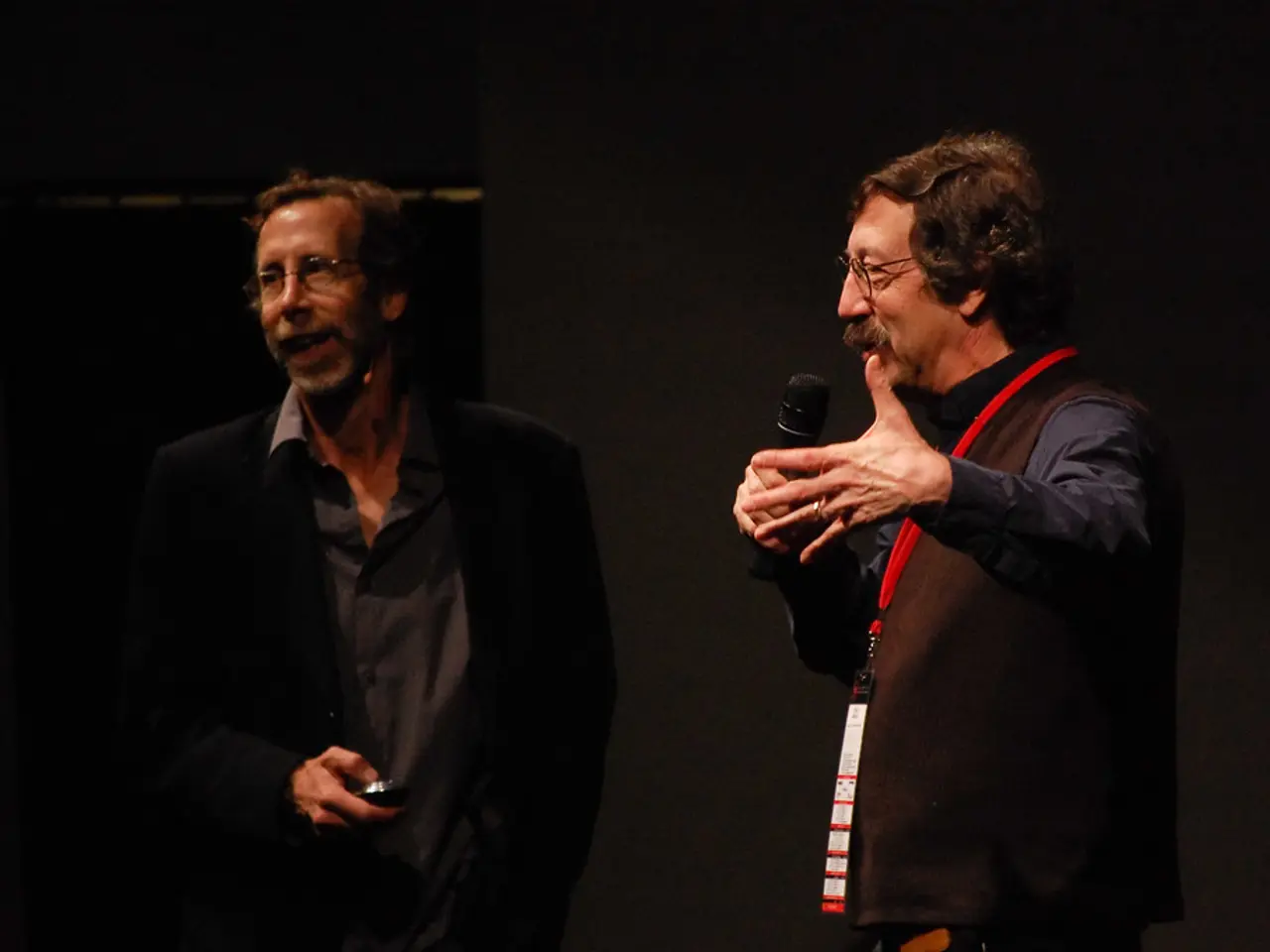Controversy over creative rights in Eros and Aanand L. Rai's dispute, as AI-modified ending of 'Raanjhanaa' stirs up Indian cinema's critical juncture: 'The Indian film industry reaches a crucial crossroads'
In the ever-evolving world of cinema, a heated debate has arisen over the use of artificial intelligence (AI) in filmmaking and the rights of filmmakers in the process. At the heart of this controversy is the dispute between filmmaker Aanand L. Rai and Eros International over the AI-altered re-release of the Tamil-language version of the 2013 commercial hit "Raanjhanaa."
The 2013 romantic drama, starring Dhanush and Sonam Kapoor, was a critical and commercial success that has maintained cult status over the past decade. However, the controversy erupted when Eros announced that the Tamil version of "Raanjhanaa," titled "Ambikapathy," would be re-released on Aug. 1 with an alternate AI-powered ending.
Rai, the director of "Raanjhanaa," has expressed concerns about the AI-altered re-release disregarding "the fundamental principles of creative intent and artistic consent." He argues that the use of AI to retrospectively manipulate narrative, tone, or meaning without the director's involvement is a direct threat to the cultural and creative fabric of the industry.
Under current Indian copyright law, film directors have recognized moral rights related to creative intent and artistic consent, despite producers holding the primary economic and authorship rights to films. These moral rights include the right to claim authorship and to restrain or claim damages for any distortion, mutilation, or other modification of their work that would be prejudicial to their honor or reputation.
However, the statutory definition of "author" in Section 2(d)(v) of the Copyright Act still names the producer as the author of a cinematograph film, which means producers retain full economic rights and control over the work, including decisions about distribution and exhibition. A 2012 Parliamentary amendment explicitly rejected proposals to vest moral rights in directors, complicating the legal landscape for directors asserting control over modified versions.
The recent controversy involving AI-altered versions of films without directors' consent highlights this tension. Rai claims that tampering with a film after its release, especially through artificial means, is a breach of the very idea of authorship. Meanwhile, Eros Group CEO Pradeep Dwivedi has defended the AI changes as legally permissible under the current framework that grants producers full rights over film authorship.
In summary, directors currently have moral rights that protect their creative intent and consent to some extent, but these rights do not override the producers’ economic ownership and control over the film, including AI-based alterations, under prevailing Indian copyright law. The ongoing legal debates and cases, such as the AI alteration of "Raanjhanaa," may prompt future legislative or judicial clarification on this nuanced area.
Aanand L. Rai warns that the implications of the AI controversy extend far beyond his own work. He suggests that the issue transcends their business disagreements and raises questions about the future of the film industry and the sanctity of creative vision. On the other hand, Dwivedi claims that all AI-generated content was supervised by a team of human creatives, characterizing the AI re-release as a human-directed reinterpretation using AI as a tool.
The dispute between Rai and Eros International underscores the complex interplay between technology, creativity, and the law in the film industry. As AI continues to reshape the landscape of cinema, it remains to be seen how these issues will be resolved and what impact they will have on the future of filmmaking in India and beyond.
References:
[1] "AI-Altered Films: The Legal and Ethical Quagmire," The Indian Journal of Intellectual Property Law, Vol. 12, No. 3, 2023.
[2] "The Role of Producers and Directors in Indian Cinema: A Copyright Perspective," The Indian Law Review, Vol. 36, No. 2, 2019.
- As the debate over AI-altered films continues, concerns about the respect for creative intent and artistic consent, inherent to the process of filmmaking, are escalating within the business and technology sectors, crossing over into debate within the spheres of entertainment and sports.
- The ongoing legal dispute between Aanand L. Rai and Eros International highlights the critical importance of clarifying the rights of filmmakers and producers in the era of increasing AI use in the finance and technological realm, given the potential implications for the future of creative industries, including but not limited to cinema, music, and literature.




